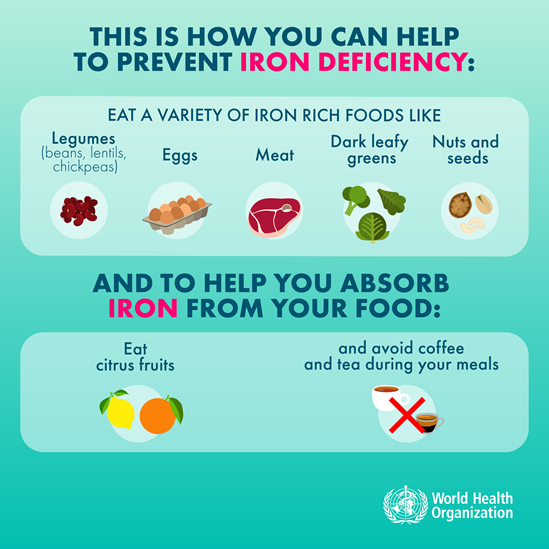Healthy diet
A healthy diet is a foundation for health, well-being, optimal growth and development. It protects against all forms of malnutrition. Unhealthy diet is one of the leading risks for the global burden of disease, mainly for noncommunicable diseases such as cardiovascular diseases, diabetes, and cancer.
Evidence shows the health benefits of a diet high in whole grains, vegetables, fruit, legumes and nuts, and low in salt, free sugars and fats, particularly saturated and trans fats. A healthy diet starts early in life with adequate breastfeeding. The benefits of a healthy diet are reflected in higher educational outcomes, productivity and lifelong health.
A healthy diet is also more environmentally sustainable, as it is associated to lower greenhouse gas emissions, lower use freshwater and land mass.
However, healthy diets can be inaccessible, particularly in low- and middle-income countries, and also in places and situations with high rates of food insecurity. Around the world, an estimated 3 billion people cannot access safe, nutritious and sufficient food. In addition, the proliferation of highly processed food, supported by aggressive marketing, rapid unplanned urbanization and changing lifestyles have contributed to more people eating unhealthy diets high in energy, free sugars, salt, saturated fats and trans fats.
What constitutes a healthy diet may differ depending on individual needs, locally available foods, dietary customs, cultural norms and other considerations. However, the basic principles of healthy diets remain the same for everyone. The nature of access to food requires broader solutions at the societal level to promote safe and healthy food options.
WHO recommends
- to meet the needs of energy, protein, vitamins and minerals through a varied diet, largely plant based, and balancing energy intake with expenditure;
- obtaining the largest amount of energy from carbohydrates, mainly through legumes and wholegrain cereals;
- reducing total fats to less than 30% of total energy intake, shifting fat intake away from saturated and trans fat to unsaturated fats, and eliminating industrial trans fats from the diet;
- reducing free sugars to less than 10% (ideally 5%) of total energy intake;
- limiting sodium intake to less than 2 grams per day (equivalent to 5 grams of salt); and
- consuming at least 400 grams of vegetables and fruit per day in adults and children above 10, and 250–350 grams per day in younger children.
WHO continuously updates the guidance on what constitutes a healthy diet to prevent all forms of malnutrition and promote well-being in different population groups across the life course and on how different nutrients and foods contribute to it.
WHO develops evidence-informed guidance on improving the food environment, such as school food and nutrition policies, public food procurement policies, nutrition labelling policies, policies to restricting marketing foods and beverages to children, and fiscal policies (i.e., taxation and subsidies). WHO engages with food manufacturers on improving the nutrition profile of their products.
WHO supports Member States in adopting and implementing policies by providing tools such as systems to characterize the nutrient profiles of foods, benchmarks for sodium content in food, manuals on how to implement fiscal policies and marketing restriction policies.
WHO regularly monitors the adoption and implementation of food environment policies and their impact on population dietary intake and health.


















